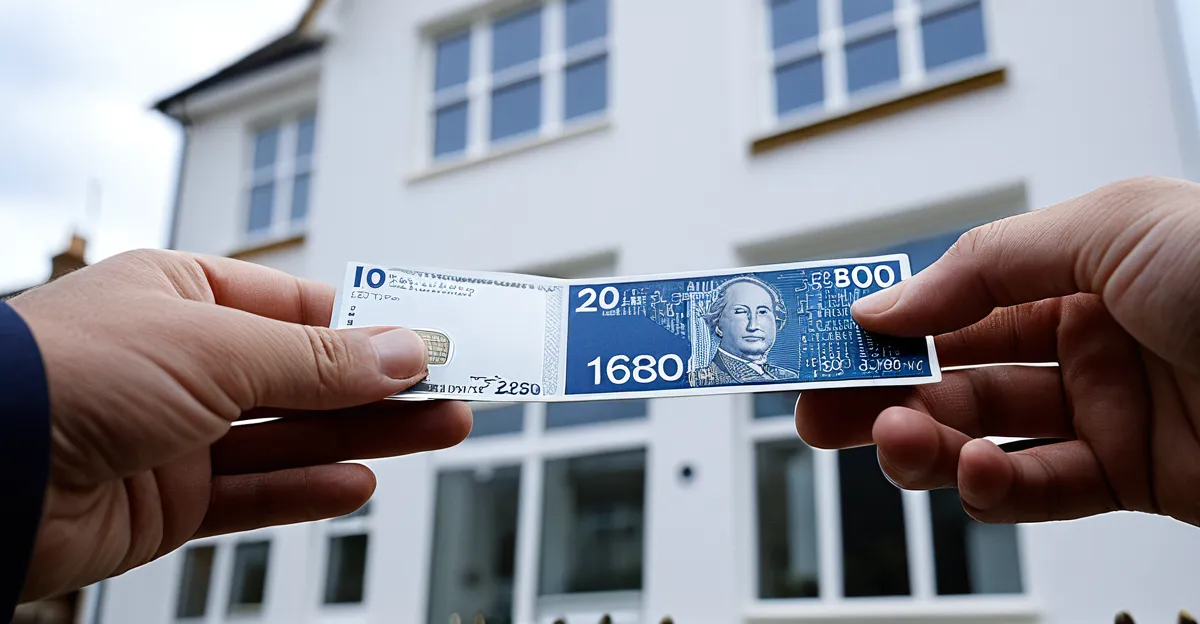The rise of emerging banking technologies in the UK property market
Emerging banking technologies are fundamentally reshaping the UK property market transformation. Among the most significant fintech innovations driving this change are open banking, blockchain, digital mortgages, and artificial intelligence (AI). These tools collectively enhance transparency, accelerate processes, and improve overall efficiency for buyers, sellers, and lenders.
Open banking enables seamless financial data sharing, which facilitates quicker mortgage assessments and approvals. Blockchain’s distributed ledger technology provides a secure framework for handling property titles and preventing fraud, while smart contracts automate agreements, reducing the need for manual intervention. Digital mortgages streamline the borrowing process by simplifying document submission and speeding up approvals, directly benefitting buyers and lenders alike. AI-powered tools offer automated property valuations and risk assessments, reducing human bias and errors while enhancing decision-making.
Additional reading : How can sustainable finance shape the future of property investments in the UK?
The drivers behind the adoption of these technologies include the rising demand for faster property transactions, growing consumer expectations for digital services, and the UK government’s encouragement of fintech innovation within financial and property sectors. Additionally, post-pandemic shifts toward contactless and remote interactions have amplified the urgency for digital transformation in property dealings.
Initial impacts in the UK property market are evident in transaction speed, where processes that once took weeks now conclude in days or even hours. Transparency has vastly improved with better access to real-time data and automated verification steps, reducing errors and disputes. Efficiency gains benefit all stakeholders, minimizing administrative overheads and lowering costs. Together, these innovations represent a clear step toward a more agile, secure, and accessible property market in the UK.
Have you seen this : What impact does the Bank of England’s policy have on UK property prices?
Open banking’s influence on property transactions and financing
Open banking has significantly streamlined mortgage applications and approvals within the UK property market. By securely sharing financial data directly from buyers’ bank accounts with lenders, open banking reduces the need for manual document uploads and repeated verifications. This acceleration shortens mortgage processing times, enabling faster property transactions and reducing uncertainty for buyers and sellers alike.
Financial assessment has become more accurate and personalised through open banking’s real-time access to detailed income, spending, and saving patterns. Lenders can evaluate a borrower’s financial health comprehensively, leading to tailored lending offers that better match individual circumstances. This enhanced precision supports more responsible borrowing and reduces the risk of defaults.
One of the most impactful outcomes of open banking in property finance is improved access for first-time buyers and non-traditional borrowers. Traditional mortgage approval routes often exclude those with atypical income sources or limited credit history. Open banking’s direct insight into cash flow allows lenders to consider a wider range of financial behaviours, opening the market to more prospective buyers and fostering greater inclusivity.
Together, these benefits of open banking reshape the property market by increasing efficiency, transparency, and fairness in financing. Buyers gain a smoother, faster experience, while lenders enhance risk management—advancing the broader UK property market transformation.
Blockchain and digital ledger systems: increasing transparency and security
Blockchain technology plays a pivotal role in enhancing transparency and security within property transactions. At its core, blockchain offers a decentralized digital ledger that records property titles immutably, preventing alterations or fraud. This feature ensures that ownership verification is trustworthy and tamper-proof, a critical improvement over traditional paper-based systems prone to forgery or loss.
Smart contracts, powered by blockchain, automate key transaction steps such as agreement execution and payment releases. These contracts operate under predefined conditions, eliminating human error and reducing administrative delays. For instance, once all contractual conditions are fulfilled, a smart contract can instantly transfer ownership and release funds, accelerating transaction completion.
In the UK property market transformation, several pilot projects have demonstrated blockchain’s value in real-world settings. These initiatives test blockchain’s capacity to streamline title registration, confirm transaction histories, and facilitate secure data sharing between buyers, sellers, and lenders. By providing an auditable, transparent transaction trail, blockchain technology significantly mitigates disputes and increases confidence among stakeholders.
Overall, blockchain’s security framework and smart contract automation represent fundamental fintech innovations driving the UK property market’s modernization. These technologies not only bolster safety but also promote efficiency and trust, addressing longstanding challenges within property transactions.
Artificial intelligence and automation in property markets
Artificial intelligence (AI) significantly advances the UK property market transformation by enabling automated valuations and enhanced risk assessments. AI-driven property valuations use vast datasets and machine learning algorithms to provide accurate, real-time estimates of property values. This automation reduces reliance on manual appraisals, speeds up decision-making, and improves pricing accuracy for buyers, sellers, and lenders.
In lending, AI supports more sophisticated risk assessment processes by analysing borrower data alongside market trends to detect potential fraud and financial vulnerabilities. These AI systems identify patterns that human reviewers might miss, strengthening loan approvals’ reliability and protecting stakeholders from potential losses.
For estate agents and customer service, AI-powered chatbots and virtual assistants streamline communication, provide instant property information, and personalise client interactions. These tools enhance overall buyer experience by making property search and transaction support more accessible and efficient.
Together, AI and automation form critical fintech innovations that are reshaping workflows, boosting efficiency, and improving accuracy within the UK property market. This technological integration creates a more responsive and data-driven environment for all participants.
Digital mortgages and online conveyancing: transforming the buying journey
Digital mortgages have revolutionised the UK property market by significantly streamlining document management and approval processes. Traditional mortgage applications often involve extensive paperwork, manual checks, and long waiting periods. Digital mortgages replace these with integrated platforms that allow buyers to upload documents electronically, enabling lenders to quickly verify information through automated systems. This acceleration reduces processing times from weeks to days, directly benefiting buyers by minimising uncertainty and delays.
Online conveyancing complements this shift by digitising the legal transfer of property ownership. Conveyancers and solicitors now use secure platforms to manage contracts, searches, and communications online, ensuring transparency and traceability at every step. Unlike conventional conveyancing, which relies heavily on physical paperwork and postal exchanges, online conveyancing facilitates faster transaction cycles and improves coordination between parties such as buyers, sellers, and lenders. This digital transformation reduces errors and administrative burdens, which historically slowed property deals.
In the UK context, these fintech innovations enhance the overall buyer and seller experience by making the property purchasing journey smoother and more transparent. Buyers enjoy the convenience of tracking progress in real-time, while sellers and estate agents benefit from quicker completions and fewer complications. Digital mortgages and online conveyancing together represent pivotal changes driving the UK property market transformation, addressing longstanding inefficiencies through technology.








